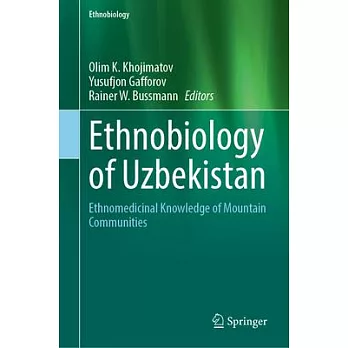Olim K. Khojimatov In 1990, Olim K. Khojimatov worked as a research trainee in the laboratory Flora and taxonomy of vascular plants of the Institute of Scientific Research of Botany of the Academy of Sciences of the Republic of Uzbekistan, since 1996 - a researcher at the laboratory Cadaster and Plant Resources. In 1998 Olim defended his PhD. thesis in the specialty Botany on the topic: Medicinal plants of a basin of River Pskem (Tashkent region of the Republic of Uzbekistan). Since 1999, he worked as a senior researcher at the Cadaster and Plant Resources laboratory of the eponymous institute of scientific research. In the course of scientific activity, Olim K. Khojimatov successfully participated in projects within the framework of several state scientific and technical programs. In particular, he worked on the flora of medicinal plants in Tashkent, Dzhizak, Kashkadarya, Surkhandarya regions, and Karakalpakstan. The scientific results obtained from these projects are given as recommendations to the Ecology and Environmental Protection State Committee of the Republic of Uzbekistan, employees of the reserves of the republic national parks and forestry.
In 1994-1996 Olim was granted the Japanese government MONBUSHO scholarship and studied at Nagoya University and Toyama Medical and Pharmaceutical Universities. From 2000 to 2004 he worked at the Japanese universities of Kyoto and Tokushima.
In 2008, Olim successfully defended his Doctor of Sciences dissertation in the specialty Botany-03.00.05 on the topic: Medicinal plants of South-West Tien-Shan ridges, He compiled and analyzed a list of the medicinal flora of the Uzbek part of the Western Tien Shan, numbering 705 species belonging to 351 genera and 91 families. Valuable ethnobotanical information concerning the use of medicinal plants of the study area in folk medicine by the local population has been collected. The result of the work was the development of instructions for the collection, drying, and storage of plant raw materials, as well as cartographic schemes of commercial thickets of 65 species of promising medicinal plants. The recipes were developed, and 4 kinds of healing herbal teas were introduced into production: Jeludochniy, Muzhiza, Kakhkhorin and Uspokoitelniy
During 2017-2020, Olim. Khojimatov held the post of head of the laboratory Plant Resources of the Botanical Institute of the Academy of Sciences of the Republic of Uzbekistan. Currently, he works as a leading researcher at the Cadaster and Monitoring of Rare Plant Species laboratory. His scientific direction is related to the study of medicinal plants, ethnobotany, and resources.
Olim K. Khojimatov is the author of more than 225 scientific and popular articles and theses, including published five monographs, three textbooks, one patent, and a copyright certificate. In addition, he participated in two foreign grant projects as a botanist.
Under the leadership of Prof. Khojimatov, one doctor of science (DsSc), three doctors of philosophy (Ph.D.), and one graduate student in biological sciences obtained their degrees. Currently, Olim K. Khojimatov consults one Doctor of Sciences (DSc) and three Doctor of Philosophy (Ph.D.) on scientific dissertations in biological sciences
Dr. Yusufjon Gafforov is a senior researcher at the Mycology Laboratory of the Institute of Botany, Uzbekistan Academy of Sciences. He holds a PhD in Mycology and Botany from the Institute of Botany and an MSc in Biology from Namangan State University, Uzbekistan. His research interests focus mainly on mycology, phytopathology, ethnobiology, plant protection and molecular biology. He conducted postdoctoral studies at the Swedish University of Agricultural Sciences, Uppsala, Sweden, at the Institute of Botany, Sao Paulo, Brazil, at the Institute of Microbiology, Chinese Academy of Sciences, Beijing, China, as well as than at Ibaraki University, Mito, Japan. Moreover, he has won prestigious fellowships such as the President’s International Fellowship for Visiting Professors (PIFI) from the Chinese Academy of Sciences; DAAD, Germany; TWAS-CNPq, Brazil; TWAS-CAS, China, MIF, Japan and OeAD, Austria. He was appointed Uzbekistan’s representative to the International Society of Fungal Conservation for Central & Western Asia (2012-2014) and the Asian Mycological Association (2019-2025). He has been appointed as a board member of several organizations such as the International Council for Vine Trunk Diseases, the International Union of Forest Research Organizations, and the International Society for the Conservation of Fungi and the European Mycological Association. He has also led as coordinator and partner several international and local research projects supported by the Ministry of Innovative Development of the Republic of Uzbekistan (2015-2017; 2018-2020), the Alliance of International Scientific Organizations, China (2022- 2024), National Institutes of Health and National Science Foundation, USA (2003-2007).
Dr. Gafforov has held several academic positions as a visiting scientist, including Senckenberg Biodiversity and Climate Research Institute, Goethe-Universität Frankfurt am Main, Germany in 2021, Bio-Resources and Bio-Technology Research Center, Institute of Applied Ecology, CAS, Shenyang, China from 2018 to 2019, and the Institute of Microbiology, University of Innsbruck, Austria from 2015 to 2016, to the Department of Ecology, University of Kassel, Germany in 2013, in 2017, Ruhr-University Bochum, Germany in 2009 and as a visiting researcher at the University of Vienna, Austria from 2005 to 2006.Dr. Gafforov is currently associate editor of Frontiers Fungal Biology, Plant Pathology & Quarantine, MycoKing, Studies in Fungi and member of the editorial board of Mycology, and is guest editor of Frontiers in Fungal Biology and co-editor Frontiers in Cellular and Microbiology of infections. Additionally, he has reviewed several articles in peer-reviewed Fungal Diversity; Studies in Mycology; BMC Microbiology; Frontiers in Microbiology; Frontiers in Fungal Biology; Mycological Progress; Mycoscience; Journal of Fungi; Diversity; Life; Phytotaxa; Mycology; Nova Hedwigia; Biodiversity Data Journal; Mycokeys. He has published numerous articles in peer-reviewed journals, including book chapters, and has been recognized for his excellence in research, undergraduate teaching, and outreach.
Prof. Dr. Bussmann earned his M.Sc. (Diploma) in Biology at Universität Tübingen, in 1993 and his doctorate at Universität Bayreuth in 1994. He is an ethnobotanist and vegetation ecologist, and currently Head of the Department of Botany at the State Museum of Natural History in Karlsruhe, Germany. He is also a Full Professor of Ehnobotany at the Department of Ethnobotany, Institute of Botany, Ilia State University. Before Dr. Bussmann was director of William L. Brown Center at Missouri Botanical Garden, William L. Brown Curator of Economic Botany, and Senior Curator. Before accepting the directorship of WLBC, he held academic appointments as Research Fellow in Geography and the Environment at University of Texas at Austin from 2006 to 2007, as Associate Professor of Botany and Scientific Director of Harold Lyon Arboretum at University of Hawaii from 2003 to 2006, and as Assistant Professor at University of Bayreuth from 1997 to 2003, following a postdoc at the same institution from 1994 to 1997. He holds affiliate appointments and serves as external thesis advisor at universities worldwide.
His work focuses on ethnobotanical research, and the preservation of traditional knowledge, in the Andes, Caucasus, and the Himalayas. Dr. Bussmann has authored over 350 peer reviewed papers, over 1300 peer reviewed book chapters, and authored or edited 38 books. According to Plos Biology, he is one of the most cited ethnobotanists and recognized among the most influential scientists worldwide. He currently serves as editor-in-chief of the Ethnobotany of Mountain Regions book series published by Springer Nature.
Dr. Bussmann is past President of the Society for Economic Botany and has served as board/council member of the International Society for Ethnopharmacology, Society of Ethnobiology, Botanical Society of America, and International Society of Ethnobiology.
Bussmann is editor-in-chief of Ethnobotany Research and Applications, deputy editor of the Journal of Ethnobiology and Ethnomedicine, associate editor of Ethnobiology and Conservation, academic editor of PLOS One, editor of Ethnobotany topics for the Nordic Journal of Botany,
and member of the editorial boards of Antibiotics, Life, Indian Journal of Traditional Knowledge, Pleione and Nelumbo.



 天天爆殺
天天爆殺  今日66折
今日66折 

























 博客來
博客來 博客來
博客來 博客來
博客來 博客來
博客來 博客來
博客來